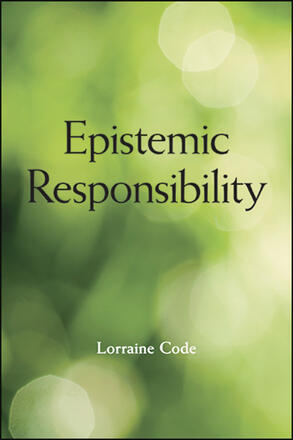
Epistemic Responsibility
Alternative formats available from:
Develops a new kind of epistemological position that highlights virtue over more standard epistemological theories.
Description
Having adequate knowledge of the world is not just a matter of survival but also one of obligation. This obligation to "know well" is what philosophers have termed "epistemic responsibility." In this innovative and eclectic study, Lorraine Code explores the possibilities inherent in this concept as a basis for understanding human attempts to know and understand the world and for discerning the nature of intellectual virtue. By focusing on the idea that knowing is a creative process guided by imperatives of epistemic responsibility, Code provides a fresh perspective on the theory of knowledge.
From this new perspective, Code poses questions about knowledge that have a different focus from those traditionally raised in the two leading epistemological theories, foundationalism and coherentism. While not rejecting these approaches, this new position moves away from a primary concentration on determinate products and towards an examination of ever-changing processes. Arguing that knowledge never exists as an ungrounded abstraction but rather emerges through dialogue between variously authoritative "knowers" situated within particular social and historical contexts, she draws extensively on examples from lived social experience to illustrate the ways in which human beings have long tried to recognize and meet their epistemic responsibilities.
This edition of Epistemic Responsibility includes a new preface from Lorraine Code.
Lorraine Code is Distinguished Research Professor Emerita of Philosophy at York University, Canada. She is the author of several books, including Manufactured Uncertainty: Implications for Climate Change Skepticism, also published by SUNY Press, and Ecological Thinking: The Politics of Epistemic Location.